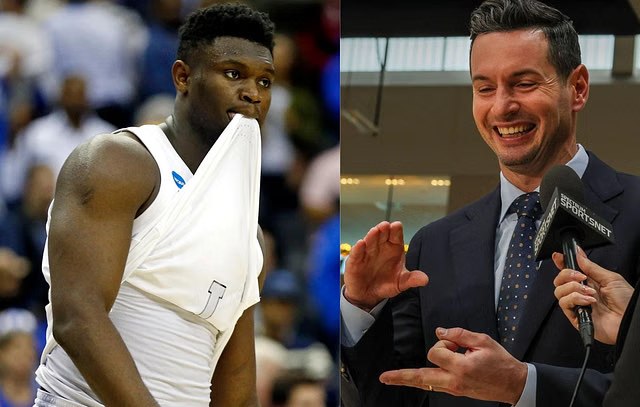Duke Basketball: A Legacy of Elite Talent Since 2000
Duke University’s men’s basketball program has long been synonymous with excellence, prestige, and elite talent. Since the dawn of the 21st century, Duke has continued to build on a storied legacy by consistently developing some of college basketball’s brightest stars. From dazzling scorers like JJ Redick to transcendent athletes like Zion Williamson, Duke’s basketball program has maintained its position as a powerhouse on the national stage. This essay will explore Duke’s rich basketball tradition since 2000, focusing on its development of elite players, the coaching philosophies that fostered their growth, and the impact these athletes have had both on and off the court.
To fully appreciate Duke’s impact since 2000, it is important to understand the foundation that preceded this era. Under legendary head coach Mike Krzyzewski, who took over in 1980, Duke rapidly transformed into a national powerhouse. By the 1990s, the Blue Devils had established themselves as one of college basketball’s premier programs, winning two NCAA championships (1991 and 1992) and making multiple Final Four appearances.
Krzyzewski’s leadership, combined with the program’s emphasis on discipline, defense, and team play, laid the groundwork for Duke’s continued success into the new millennium. The program’s ability to recruit and develop elite talent was already apparent in stars like Christian Laettner and Grant Hill, who helped cement Duke’s reputation for excellence.
As the 21st century began, Duke continued its tradition of excellence by recruiting and developing players who would become some of college basketball’s most electrifying talents. This era witnessed a blend of scoring prowess, leadership, and versatility that kept Duke consistently in the national title conversation.
One of the most iconic players of the early 2000s was JJ Redick. Known for his lethal three-point shooting and incredible work ethic, Redick redefined the role of the shooter in college basketball. Playing from 2002 to 2006, Redick was a prolific scorer who perfected the art of catch-and-shoot. He led Duke to multiple deep NCAA tournament runs and earned numerous accolades, including National Player of the Year honors.
Redick’s impact went beyond his scoring; he set the standard for professionalism and preparation, becoming a role model for future Duke players. His meticulous attention to detail and unselfish play helped Duke maintain its status as a top-tier program.
Alongside Redick, players like Carlos Boozer, Luol Deng, and Shelden Williams emerged as dominant forces. Boozer’s physicality and rebounding prowess, Deng’s versatility and defensive ability, and Williams’ all-around dominance allowed Duke to compete at the highest level. This group helped Duke reach the Final Four in 2001 and consistently made the program a formidable presence.
As the decade progressed, Duke faced new challenges in a more competitive college basketball landscape. However, the program’s ability to attract elite recruits and develop them into NBA-ready players remained intact.
In the mid-2000s, players like Gerald Henderson and Jon Scheyer provided leadership and skill to keep Duke competitive. Henderson’s athleticism and scoring ability helped Duke remain in the national spotlight, while Scheyer’s basketball IQ and clutch play were vital in Duke’s 2010 national championship run.
The pinnacle of Duke’s success in the late 2000s and early 2010s came with the 2010 NCAA Championship. Spearheaded by players like Scheyer, Kyle Singler, and Nolan Smith, this team showcased Duke’s hallmark style of unselfish offense and tough defense. The championship solidified Duke’s reputation as a program that not only recruits elite talent but also molds cohesive, championship-caliber teams.
The 2010s saw Duke continue to attract top high school prospects, many of whom were one-and-done players destined for the NBA. This decade was characterized by a blend of veteran leadership and youthful exuberance.
Duke’s recruiting prowess was on full display with the arrivals of Kyrie Irving and Jabari Parker. Irving, a prodigious talent, dazzled with his ball-handling and scoring before leaving for the NBA after just one season. Parker, with his versatility and scoring ability, was another highly touted recruit who shined during his two seasons at Duke.
These players exemplified Duke’s ability to bring in top-tier talent capable of dominating college basketball and making an immediate impact.
Duke’s success also relied on players who stayed multiple years and developed into leaders. Grayson Allen and Quinn Cook were instrumental in sustaining Duke’s competitiveness in the mid-2010s. Their experience and scoring ability helped Duke reach the Final Four in 2015 and 2019, respectively.
Arguably, the most transformative Duke player since 2000 is Zion Williamson. Arriving in 2018 amid massive hype, Zion represented a new breed of basketball player—combining size, speed, and explosive athleticism in a way rarely seen.
Williamson’s freshman season electrified the basketball world. His highlight-reel dunks, dominant rebounding, and powerful drives brought a renewed national spotlight to Duke basketball. Zion’s charisma and unique skill set made him a cultural phenomenon, transcending college basketball.
His ability to carry Duke to a number one seed in the NCAA tournament, despite injuries limiting his play, underscored his importance. Zion’s influence extended beyond the court as he became a social media sensation, boosting Duke’s recruiting and marketing appeal.
Central to Duke’s success in developing elite talent since 2000 has been the consistent coaching philosophy of Mike Krzyzewski. His approach emphasized not only skill development but also character building, leadership, and team-first mentality.
Krzyzewski’s dedication to player development ensured that Duke athletes were prepared for the professional level while also growing as individuals. His ability to adapt to changing styles of play and recruit effectively in a competitive landscape has been a cornerstone of Duke’s sustained excellence.
Since 2000, Duke has become one of the premier pipelines to the NBA. Numerous players have transitioned from Cameron Indoor Stadium to successful professional careers.
Notable NBA alumni from this era include:
- JJ Redick: Known for his sharpshooting, Redick enjoyed a long NBA career as a reliable scorer.
- Kyrie Irving: A multiple-time All-Star and NBA champion.
- Zion Williamson: Expected to be a franchise cornerstone in the NBA.
- Brandon Ingram, Jayson Tatum, and Marvin Bagley III: All one-and-done stars who have made significant impacts in the league.
This transition speaks volumes about Duke’s ability to prepare players for the next level both athletically and mentally.
Duke’s basketball culture emphasizes a balance of academic achievement, athletic excellence, and community involvement. Players are expected to uphold high standards on and off the court, reflecting the university’s broader values.
This culture has attracted recruits who value not just basketball development but also personal growth, ensuring that Duke produces well-rounded individuals who succeed beyond their playing careers.
Since 2000, Duke basketball has remained a beacon of elite talent development and program excellence. From JJ Redick’s pinpoint shooting to Zion Williamson’s breathtaking athleticism, the program has consistently attracted and nurtured some of the brightest stars in college basketball.
Under the steady hand of Coach Mike Krzyzewski, Duke has navigated the evolving landscape of college basketball while staying true to its core principles of teamwork, discipline, and excellence. The Blue Devils’ ability to develop NBA-ready talent and maintain a culture of integrity and achievement ensures that Duke will continue to be a dominant force in college basketball for years to come.



